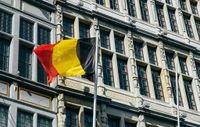On March 28, 2025, the Brussels prosecutor's office announced a significant decision to transfer $108 million to Uzbekistan, funds that were confiscated as part of the ongoing investigation into corruption and money laundering linked to telecommunications contracts. This decision comes amid a broader effort to address corruption within the region, specifically focusing on the notorious case of Gulnara Karimova, the daughter of Uzbekistan's first president.
According to the Federal Prosecutor's Office of Belgium, these funds were definitively recognized as confiscated for the benefit of the Belgian state. An additional $108 million will also be allocated to the Belgian treasury. The court's ruling reflects an international legal collaboration, as the Uzbek judicial authorities had previously requested assistance from Brussels based on the UN Convention against Corruption.
The Brussels prosecutor's office confirmed that, following this international request, assets totaling $200 million were seized in Belgium. These funds, along with accrued interest, were recognized as confiscated by the Brussels court. The court's decision to divide the confiscated assets between Belgium and Uzbekistan was based on a mechanism similar to that used for distributing funds among EU countries.
In a statement, the prosecutor's office emphasized the importance of this case, noting, "The Brussels prosecutor's office received a request for international legal assistance from the judicial authorities of Uzbekistan. As a result of executing this international request, funds amounting to $200 million were arrested in Belgium." This highlights the cooperative efforts between the two nations to combat corruption and recover illicitly obtained assets.
The case against Gulnara Karimova has drawn international attention, particularly due to the scale of the alleged corruption. In September 2022, Uzbekistan's Deputy Minister of Justice, Muzraf Ikramov, reported that the total assets related to Karimova and her criminal group, which are spread across countries like France, the USA, and Latvia, were estimated to be nearly $1.4 billion, or 15 trillion soums. This staggering figure underscores the depth of the corruption investigation and the challenges involved in repatriating these funds.
Karimova was first sentenced to five years of restricted freedom in 2015 for various charges, including embezzlement and corruption. However, her situation worsened when, in March 2020, she received an additional sentence of 13 years and four months for further crimes, including the embezzlement of state funds and engaging in transactions contrary to Uzbekistan's interests.
The investigation into Karimova's activities began in earnest in 2012, with inquiries launched in the Netherlands, Switzerland, and Sweden, followed by investigations in the USA in 2014. The allegations included claims that Russian companies, such as MTS and VimpelCom, along with the Swedish-Finnish company TeliaSonera, paid bribes through front companies to individuals close to Karimova to gain access to Uzbekistan's telecommunications market.
In 2019, MTS reached a settlement with US authorities regarding the corruption case, agreeing to pay a fine of $850 million. Similarly, VEON settled in February 2016 with a payment of $795 million, while Telia paid a total of $965 million to US and Dutch authorities in September 2017. These settlements highlight the far-reaching implications of the corruption scandal and the significant financial penalties imposed on companies involved.
In a related development, in February 2025, Uzbekistan's government formalized an agreement with Switzerland to return approximately $182 million in confiscated assets linked to Karimova. These funds are earmarked for the Uzbekistan Vision 2030 trust fund, which is intended to support social projects within the country. This agreement, along with previous transfers, brings the total amount returned from Switzerland to $313 million.
As the investigation continues, the Belgian authorities have also indicated plans to transfer the remaining funds from the confiscated assets to the Belgian state treasury. The Brussels prosecutor's office has been proactive in its approach, working closely with Uzbek authorities to ensure that the illicitly obtained assets are returned to their rightful place.
Despite these efforts, the process remains complex and ongoing. The investigation in Belgium is still not concluded, and many details about the assets involved cannot be disclosed due to the ongoing legal proceedings. The Deputy Minister of Justice has acknowledged the challenges in navigating the legal landscape surrounding these assets, emphasizing that much information cannot be revealed at this time.
In light of these developments, the Uzbek government has expressed its commitment to tackling corruption and seeking justice for the illicit activities that have plagued the nation for years. The recent agreements and asset recoveries represent a step forward in this ongoing battle.
As Uzbekistan continues to pursue the recovery of assets linked to Gulnara Karimova, the international community watches closely, recognizing the significance of these actions in the broader context of anti-corruption efforts. The developments in Belgium illustrate a collaborative approach to addressing corruption that transcends borders, reinforcing the importance of global cooperation in combating financial crimes.
The case of Gulnara Karimova serves as a stark reminder of the challenges faced by nations in their fight against corruption and the complexities involved in recovering stolen assets. With ongoing investigations and international collaborations, there is cautious optimism that progress can be made in restoring justice and reclaiming the resources that rightfully belong to the people of Uzbekistan.




